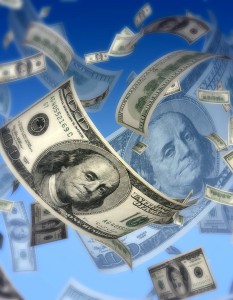Who Benefits from Facebook’s $100B IPO?

For some comparison, let’s look at a corporate giant like Pfizer. It’s currently valued at around $168 billion, which isn’t a heck of a lot more than Facebook’s projected value. But here’s the big difference: Pfizer went public in 1942. It’s taken a long, long time to create a company that big.
People can debate whether or not a big social network is worth a hundred billion. And who really knows? It might be worth that much, considering that they own a big piece of the entire Internet, which in turn represents a larger and larger share of the total economy with every day. But here’s the real problem: the most exciting companies are going public later and later.
What late IPOs mean is that the public loses out on all of the major capital appreciation. Facebook will immediately be one of the largest companies in the world, which means that the general public will start “automatically” buying it. The pension funds and 401Ks of the entire middle class will start buying it as it becomes part of various indexes. It’s at this point that big companies become everyone’s concern: they become held as vital parts of retirement plans for millions of regular people. But can the public ever hope to participate in Facebook’s success story?
Facebook’s valuation is incredible. But the question to ask is if the astounding appreciation has alreadyhappened or if it’s goingto happen. You can debate whether or not it’s worth a hundred billion, but you can also ask if it could possibly be worth a trillion dollars – which would only require a 1,000 percent return. How about ten trillion? With these absolutely massively valued IPOs, can the public ever receive the benefit of thousand or even tens of thousand percent returns (as in the case of Microsoft, when 21 bucks turned into something like 7 or 8 thousand.)
This new model creates incredible wealth for founders and venture capitalists. Mark Zuckerberg might be immediately worth $24 billion, ranking him as one of the richest people in the world. Massive aggregated fortunes can certainly do great things for the world, as Bill Gates and Warren Buffett have shown. However, these fortunes seem to have been made slower, through a gradual process of compounding in which the public participated.
Ten years from now, Facebook may have the same story as some of these other successful companies. It may go up a thousand percent. It may go up ten thousand percent. It may be the Internet. It may be a good chuck of the whole economy. It may create wealth for everyone and not just for a few. But it seems more likely that massive IPOs like Facebook’s sell the public a fancy new house, instead of building it, along with everyone, brick by brick.

